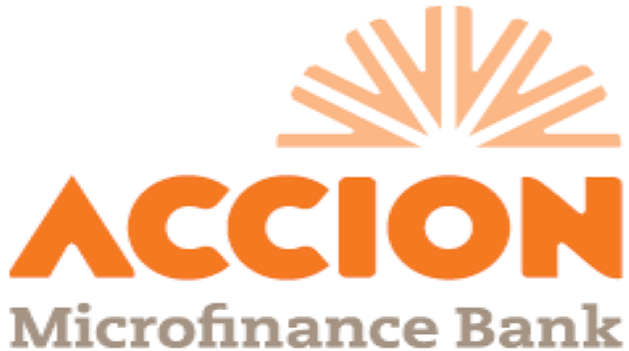E-Financial
Technology To Enhance Insurance Sector’s Financial Inclusion Programme-NAICOM

Investing in technology is one of the ways the insurance industry could effectively key into the financial inclusion target of the Federal Government.
Mr Sunday Thomas, National Insurance Commission (NAICOM), Acting Chief Executive Officer, gave the charge at the 2019 Insurance Professional Forum organised by the Chartered Insurance Institute of Nigeria (CIIN) in Abeokuta, Ogun State.
The theme of the forum which came at the heels of CIIN’s 60th Anniversary, is: “The Digital Era: Implications for Insurance Professionals.”
According to him, if the industry is to effectively key into the financial inclusion target of the federal government, it behoves on the operators and regulators to reinvigorate and face the challenges of digitalising of operations.
The NAICOM Acting CEO said that failure of the insurance companies to key into the 21st century demand for digital business services might spell doom for the industry.
“Our failure to master social, mobile, analytics and cloud technologies means we will be unable to serve even the most basic demands of customers and the post-digital world.
“Hence, we will be prevented from embracing the next digital trends or disruption.
“It is important that we work towards being part of the wave because this new set of technologies will ensure we rethink the entire industry and the parts needed to be played in the world.
“Insurance professionals need to be more alert and imbibe various relevant technologies as a baseline or core competency while adopting newer technologies – the internet of things (IoT).
“Also, telematics, “big data”, machine learning and artificial intelligence (AI), “chat-bots”, distributed ledger technology (DLT) and so on,” he said.
According to him, consumers’ experience locally or globally are going to be greatly influenced by digital technology and so insurance companies must endeavour to take their products to the comfort of the consumer.
Thomas said: “Imagine this scenario; consumers having their claims, complaints or inquires attended to with minimal human participation, tasks that ordinarily would take several daunting processes to accomplish, now simplified.
“Automated, saving downtime, improving consumer experience, reducing operational costs and providing new revenue streams.
“This scenario as just described is not far-fetched from reality ; it is not only possible and achievable, it is already happening.
“This is where our true service will lie and also how the narrative of the insurance industry and market in Nigeria will change.”
Thomas noted that the insurance business must understand that digitalisation has now taken precedence in people’s daily affairs and the consequence could be massive if it failed to fix any gap that this could create in its service delivery.
The Acting Commissioner said Insurance companies must effectively integrate into the robust financial circle to take its rightful place in the economy.
He said that the commission was committed to improving the use of technology in the sector by investing hugely in automating most of its operations.
“To this end, the commission’s portal that will integrate all insurance transactions into a single hub is being finalised.
“Hopefully, by the time we meet next year, our processes would have become fully automated and operational, ” he said.
He said that NAICOM more than ever before was resolute in sustaining existing initiatives and introducing new reforms that would transform the industry from the resisted to the sought after.
E-Financial
Zenith Banks Leads as 8 Banks Suffer N156Bn Impairment Charges

Eight leading Nigerian banks collectively set aside N156 billion as impairment charges on their credit and financial assets, marking a significant financial impact amidst a challenging economic environment, in the opening quarter of 2025.

Known commonly as loan losses or credit impairments, these charges highlight the banks’ defensive measures against risks arising from inflation, naira depreciation, and tightened liquidity affecting consumers and businesses alike.
The level of impairment varied considerably across institutions, reflecting divergent risk appetites and credit management practices.
Zenith Bank led with the highest provision of N49.38 billion, an 11.8 percent reduction from the previous year’s N55.97 billion.
This decline may suggest enhanced asset quality or more rigorous loan recovery tactics.
Broken down, loans and advances contributed N35.95 billion to impairments, while investment securities and treasury bills added N7.1 billion and N2.16 billion respectively.
Despite heavy provisioning, Zenith recorded a notable 20.7 percent increase in post-tax profit, soaring from N258.34 billion to N311.83 billion.
Similar trends emerged at First HoldCo, which posted N37.25 billion in impairment (down 11.2 percent), driven mainly by loans and advances provisions of N41.23 billion.
Offsetting this were write-offs and reversals that mitigated losses.
First HoldCo’s profit, however, fell to N171.10 billion from N208.11 billion.
Access Holdings and Guaranty Trust Holding Company also demonstrated reduced impairment charges, indicating stronger credit monitoring.
Access’s net provision dropped 4.5 percent to N21.77 billion, while Guaranty Trust’s impairment stabilized near last year’s N13.42 billion figure.
Yet, Guaranty Trust’s profit plunged 43.6 percent to N258.03 billion, a striking contrast to other banks’ profit growth.
On the other hand, United Bank for Africa (UBA) faced a staggering 332.2 percent surge in impairment, from N3.28 billion to N14.18 billion—pointing to amplified credit risks possibly driven by external economic pressures.
Nonetheless, UBA recorded a 33.1 percent profit uptick to N189.84 billion.
FCMB’s impairment charge fell notably by nearly 60 percent to N9.52 billion, aided by significant recoveries of previously written-off loans, boosting its profit to N32.23 billion.
Meanwhile, Fidelity Bank and Wema Bank posted sharp rises in impairment—285.8 percent and 64.7 percent increases respectively—reflecting heightened write-downs that underscore growing risk exposure amidst portfolio expansions.
Overall, while the cumulative impairment charge diminished by 5.2 percent compared to Q1 2024, individual bank results were mixed, embodying the varied strategies and external pressures in Nigeria’s banking sector.
E-Financial
SEC Flags FF Tiffany as Ponzi Scheme

Securities and Exchange Commission (SEC) has revealed plans to commence investigation into the activities of an entity operating under FF Tiffany, allegedly running a fraudulent investment scheme that has defrauded citizens.

A statement by SEC on Tuesday in Abuja said preliminary information revealed that the scheme, which promised investors unusually high and unrealistic returns, had resulted in the loss of several billions of naira.
The SEC said it viewed the activity as a threat to investor confidence and the overall integrity of the financial system.
The commission assured the public that it was working closely with law enforcement agencies and other relevant bodies to bring everyone involved in the unlawful operation to justice.
According to SEC, those found culpable will be prosecuted in accordance with Investment and Securities Act (ISA) and regulatory provisions.
SEC reiterated its earlier warnings to the general public to desist from engaging in Ponzi or unregistered investment schemes that promised guaranteed or exaggerated returns.
”These schemes are not registered with the SEC and do not offer investor protection under the law.
“The commission is currently investigating 79 schemes and will make a statement on its findings at the conclusion of the investigation,” the SEC said.
The commission encouraged investors to conduct due diligence and verify the registration status of any investment firm or product by visiting the SEC website or contacting the commission directly through official channels.
SEC said it remained committed to its mandate of protecting investors, ensuring fair practices, and maintaining confidence in Nigeria’s capital market.
E-Financial
AccionMonie App to Empower Low-Income Households

Accion Microfinance Bank has unveiled AccionMonie, a next-generation digital financial services platform aimed at empowering individuals, micro, small, and medium enterprises (MSMEs), as well as low-income households across Nigeria.

Speaking at the official launch in Abuja, Chief Executive Officer of Accion MfB, Taiwo Joda, described the introduction of AccionMonie as a significant milestone and a testament to the bank’s culture of innovation, designed to meet the evolving needs of its customers.
“At Accion Microfinance Bank, we believe in the potential of every MSME to drive inclusive economic growth. That is why we are committed to empowering them with the financial support they need to grow, innovate, and make a lasting impact in their communities and beyond,” Joda said.
He added that the app provides instant access to essential services including loans, savings, and other forms of financial support.
According to Joda, AccionMonie is a strategic component of the bank’s “Always There to Lend You a Hand” campaign, which underscores its commitment to small business development and the economic upliftment of underserved households. The campaign positions Accion MfB as not only a financial institution but also a trusted partner in its customers’ journey to prosperity.
Highlighting the economic role of MSMEs in Nigeria, he noted that with an estimated 37 million MSMEs, the sector accounts for 86% of employment and contributes 48% to Nigeria’s Gross Domestic Product (GDP). However, these enterprises continue to face major challenges such as limited access to finance, inadequate infrastructure, and an unfavourable business environment.
Also speaking at the launch, the bank’s Chief Commercial Officer, Stephen Olalere, said the combination of AccionMonie and the bank’s expansive network of over 74 branches across 12 states will help bridge the gap in financial service delivery to small businesses.
“The platform’s user-friendly features are designed to simplify payments and offer vital support to businesses and individuals alike,” he said.
Paul Ehiagbonare, Chief Digital Officer of the bank, described the launch as a bold step toward digital leadership and financial empowerment.
“For us, AccionMonie reflects customer empowerment through digital tools and technologies. It offers a range of customer-focused features designed to promote financial inclusion,” he said.
One of its standout features is Save2Loan, which allows users to save between ₦50,000 and ₦250,000 over a 90-day period and become eligible for a loan worth twice their saved amount. This, Ehiagbonare explained, will help promote a savings culture while enhancing credit access.
In addition, customers can conveniently fund their AccionMonie accounts using any debit card, eliminating the need for physical visits or long queues in banking halls.

 Broadcasting3 days ago
Broadcasting3 days agoNigeria Week Ahead: Inflation, Oil and Naira in focus

 News3 days ago
News3 days agoEFCC: Accusations Against Our Chairman Are Baseless and Misleading

 Telecom2 days ago
Telecom2 days agoNCC Introduces N10m Licence Fee for Bulk SMS Service

 Telecom2 days ago
Telecom2 days agoMTN Nigeria Targets $1Bn Cloud Market with Largest Modular Data Centre

 General News2 days ago
General News2 days agoWoodhall Capital and Partners Launch ₦1.5Bn Fund

 E-Business2 days ago
E-Business2 days agoFirm Highlights Top Risks of Quantum Computing

 General News2 days ago
General News2 days agoBurna Boy Distances Himself from Meme Coin, Labels Crypto as Fraud

 Telecom2 days ago
Telecom2 days agoPAT Taps Osi as CEO























